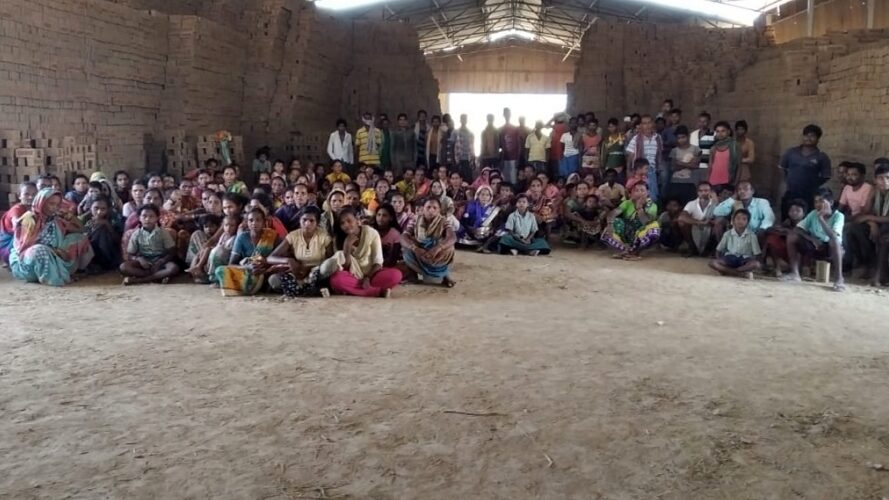64 Children Among Hundreds Rescued at Brick Kiln During Lockdown
Slavery
Earlier this week, IJM assisted local authorities in rescuing 281 people from bonded labor at a massive brick kiln. This included 64 children of all ages who were forced to mold heavy bricks alongside their parents.
This comes just one week after another operation in this same district freed 360 people from a similar brick kiln and raised critical awareness of migrant laborers trapped in southern India.
The 78 families rescued in this case had been trafficked from the state of Odisha down to Tamil Nadu in January 2020. The brick kiln owner gave them payment advances of 30,000 rupees (about $400) that they would need to repay with their work, but he manipulated the debts in an effort to keep them trapped.
Every day, the children and adults were forced to collect mud, pound it into bricks, dry and fire them in a kiln, and stack them in the massive warehouse. Work began around 3:00 in the morning and ran until sundown. Each family had to make around 2,000 bricks a day. The children weren’t allowed to attend school, and no one at the site had access to healthcare or proper food.
Life at the kiln had gotten especially difficult during the COVID-19 lockdown. The owner stopped giving the laborers any money or food, so they were slowly starving. He also confiscated their mobile phones and brought a police officer by to intimidate them when they started demanding better treatment.
This month, the desperate families managed to get a message to their relatives back in Odisha about the appalling conditions. These contacts reached out to local journalists, who then alerted IJM over the weekend.
On Sunday, May 24, IJM worked with district authorities to coordinate a rescue operation at the brick kiln to finally get these families to safety. Officials conducted detailed interviews with the laborers about their experiences, and then helped them move to safe shelter on Monday, May 25. When the owner tried to block them leaving, local authorities quickly stepped in to ensure the families traveled safely.
Police have filed a complaint against the kiln owner as a first step in the legal process. IJM will continue to support officers seeking his arrest, charging and trial.
Once at the shelter, officials provided the families with food, medical care and police protection until travel was arranged to send them home. IJM noted the families seemed happy and at peace now that they finally received some compassion.
One rescued man sent a voice note to IJM staff with his thanks, saying, “Sir, with your kindness and blessings, we’ve reached home. Only because of your help, I have been able to come back home. I was stuck in so many problems. If not for you all, it would have been so difficult. I once again want to thank you from my heart. You all helped me a lot. Thank you.”
As they return home, these 281 children, women and men will now be supported by IJM’s team in Odisha through a two-year rehabilitative aftercare program. This program will help them recover from the trauma of bondage, rebuild normal lives in freedom, and learn life skills to stay safe long-term.